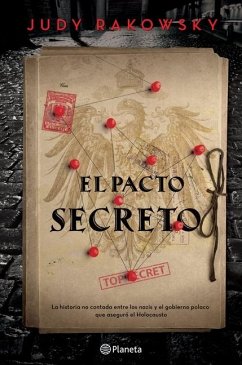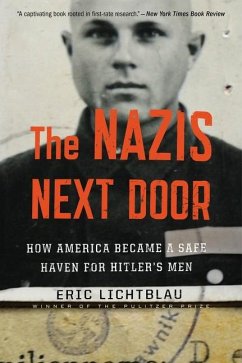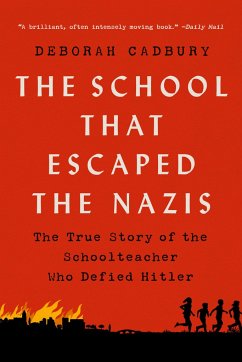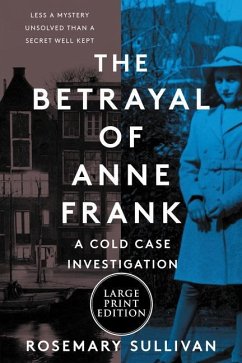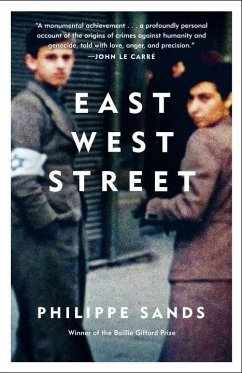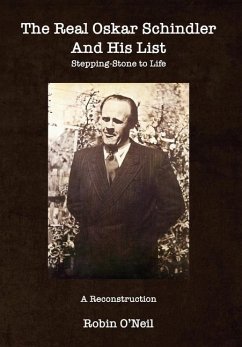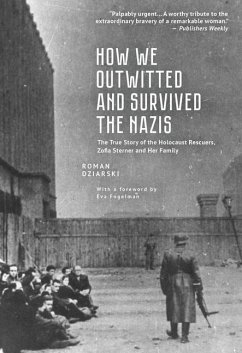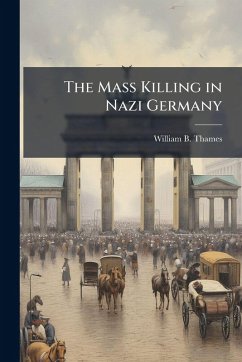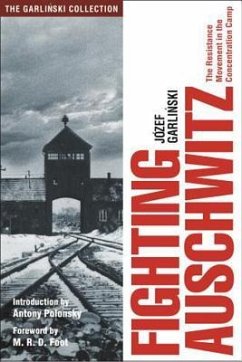
Auschwitz: Los Nazis Y La 'Solución Final' / Auschwitz: A New History
Versandkostenfrei!
Versandfertig in über 4 Wochen
17,99 €
inkl. MwSt.

PAYBACK Punkte
9 °P sammeln!
Hace sesenta años el mundo se horrorizó con el descubrimiento de la realidad de Auschwitz, el escenario de la mayor matanza de la historia humana: un millón cien mil seres humanos asesinados, incluidos más de doscientos mil niños. Pero, más allá de las imágenes y de los testimonios de las víctimas, la realidad de lo que Auschwitz fue y significó ha seguido escapando a nuestra percepción. Laurence Rees, que lleva quince años investigando el nazismo, no sólo ha utilizado la documentación aparecida en estos últimos años, sino que se ha valido de más de un centenar de entrevistas ...
Hace sesenta años el mundo se horrorizó con el descubrimiento de la realidad de Auschwitz, el escenario de la mayor matanza de la historia humana: un millón cien mil seres humanos asesinados, incluidos más de doscientos mil niños. Pero, más allá de las imágenes y de los testimonios de las víctimas, la realidad de lo que Auschwitz fue y significó ha seguido escapando a nuestra percepción. Laurence Rees, que lleva quince años investigando el nazismo, no sólo ha utilizado la documentación aparecida en estos últimos años, sino que se ha valido de más de un centenar de entrevistas a supervivientes del campo y a sus verdugos nazis, que por primera vez hablan de sus experiencias, ahora que no arriesgan nada por dejar testimonio de lo que han vivido. Éste es el primer relato completo de la historia de Auschwitz, que se convirtió en un inmenso taller que trabajaba para la guerra, a la vez que en una fábrica de muerte, donde se acabó arrojando a los niños vivos a las hogueras, al no dar abasto las cámaras de gas. Un lugar singular, con funcionarios corruptos, con médicos sanguinarios como Mengele y hasta con un burdel para estimular a los prisioneros "muy trabajadores". Pero tal vez lo más terrible resulte saber que cerca del ochenta y cinco por 100 de los miembros de la SS que trabajaron en el campo y sobrevivieron a la guerra han quedado impunes, que ni se arrepienten ni creen necesario excusarse con la obediencia a las órdenes recibidas y que ello no parece escandalizar hoy a sus conciudadanos. Este libro pretende despertar nuestras conciencias para que entre todos impidamos que vuelva a haber otro Auschwitz. ENGLISH DESCRIPTION Sixty years ago, the world was horrified by the discovery of the reality of Auschwitz, the site of the largest massacre in human history: one million one hundred thousand human beings killed, including more than two hundred thousand children. But beyond the images and the testimonies of the victims, the reality of what Auschwitz was and what it meant has continued to escape our perception. Laurence Rees, who has been researching Nazism for fifteen years, has not only used the documentation that has appeared in recent years, but he has also relied on more than a hundred interviews with camp survivors and their Nazi executioners, who for the first time speak of their experiences, now that they risk nothing by leaving a testimony of what they have lived through. This is the first complete account of the history of Auschwitz, which became an immense workshop working for the war, as well as a death factory, where children were eventually thrown alive into the bonfires, as the gas chambers could not keep up. A unique place, with corrupt officials, bloodthirsty doctors like Mengele, and even a brothel to stimulate "very hardworking" prisoners. But perhaps the most terrible thing is to know that about eighty-five percent of the SS members who worked in the camp and survived the war have remained unpunished, who neither regret nor believe it necessary to excuse themselves with obedience to the orders received, and this does not seem to scandalize their fellow citizens today. This book aims to awaken our consciences so that together we can prevent another Auschwitz from happening again.



